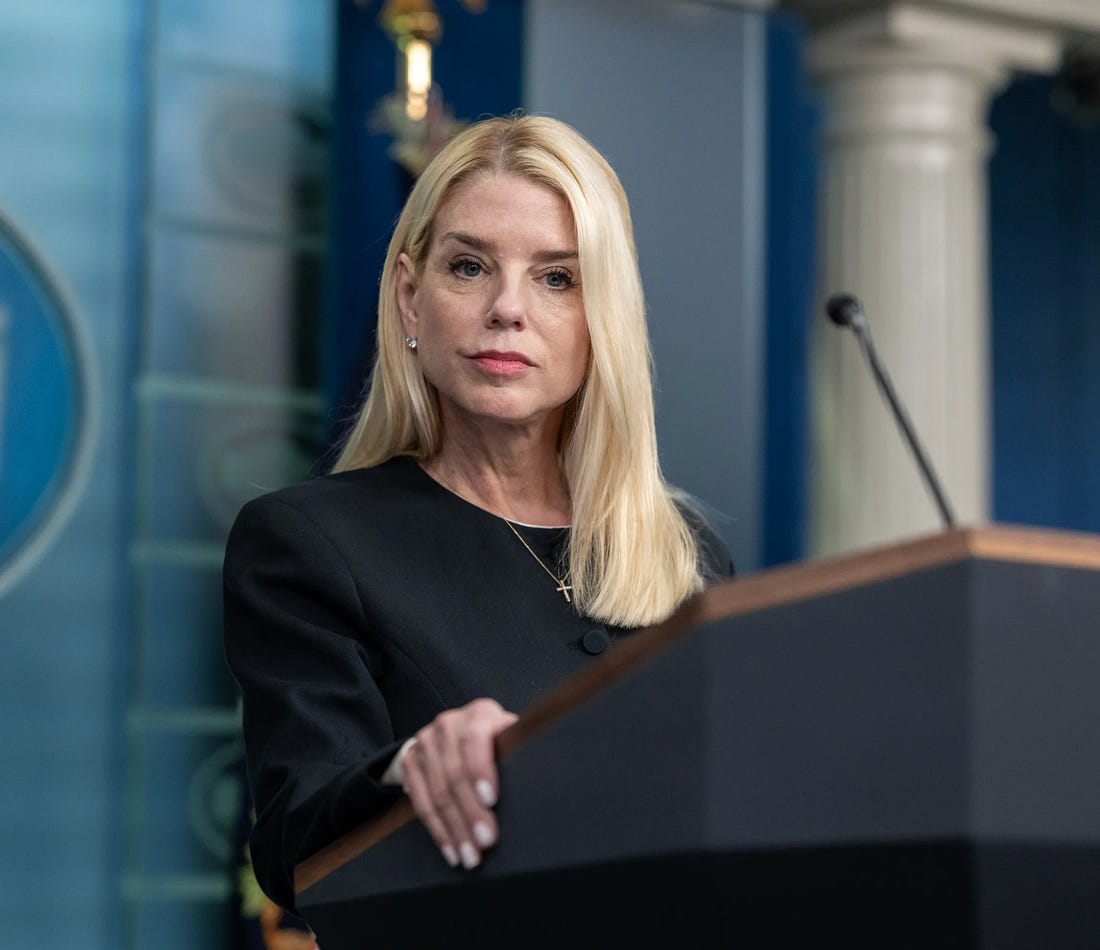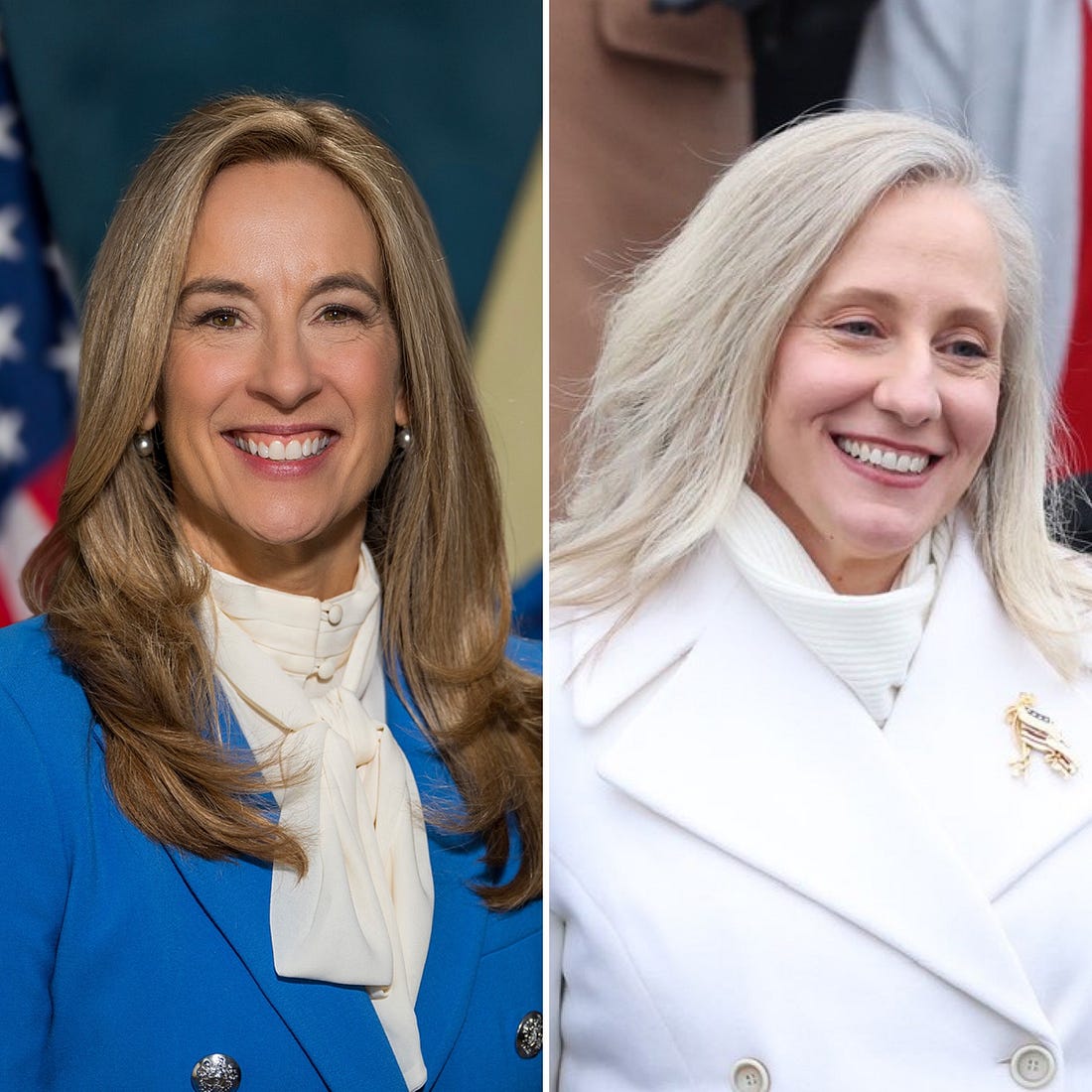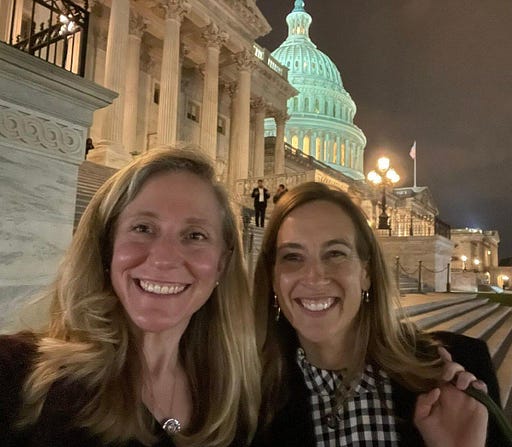Americans begin the week justifiably enraged. The brutal execution of Alex Pretti on Saturday, coupled with Donald Trump and his minions’ defaming the victim, lying about the facts, asserting that lawfully carrying a weapon made him a legitimate target (!), and refusing to undertake a serious investigation should horrify all decent people. But Americans are also frustrated with their elected leaders who have yet to halt the rogue operation, which the Trump regime lets on has very little to do with immigration.
 |
In that regard, Attorney General Pam Bondi’s letter to Minnesota Gov. Tim Walz seizing on ICE’s and CBP’s murders and inflicted chaos to make a series of unrelated, unlawful demands, should clarify their real aims. UCLA law professor Rick Hasen explained this is part of an effort to “extort” blue states:
Among the things that Bondi says “will help bring back law and order to Minnesota and improve the lives of Americans” is for Minnesota to release its voter rolls to DOJ (which no doubt will use it to fabricate more false claims of widespread voter fraud to justify more restrictive voting rules). . . .
This is outrageous and reprehensible. It suggests (but doesn’t quite promise) an ICE stand down in exchange for access to the voting rolls and meeting other DOJ demands. It shows ICE is not in Minneapolis for law enforcement or immigration purposes.
In the immediate aftermath of the last murder, Democrats, libertarian-minded Republicans such as Sen. Rand Paul (R-KY), state and local leaders, and former military should warn against invocation of the Insurrection Act. On Friday, Vice President JD Vance, between lies (e.g., falsely blaming local officials for ICE-induced violence, whitewashing arrests without 4thAmendment-required judicial warrants, falsely claim Minneapolis has the highest concentration of undocumented immigrants), acknowledged he did not think the Insurrection Act was “necessary.” What has changed on the ground since then? (Walz’s activation of state national guard to keep order may help keep Trump at bay.)
We should not think Trump is immune from public opinion or indifferent to atrocious polling. TACO Trump can be compelled to reverse himself (as he did regarding Greenland) when he runs into a buzzsaw of criticism and/or sees markets sink. Public outcry, driven by his overreach, can force his retreat.
On Capitol Hill, Democrats have declared they will not vote for the DHS spending bill. Defunding ICE entirely, and building a responsible, law-abiding replacement may not happen until we have Democratic majorities in Congress and a Democratic president, but Democrats should nevertheless introduce legislation now and begin building public support for the redesign of the Department of Homeland Security and abolition/replacement of ICE and Customs and Border Patrol, where leadership and culture are irredeemably despicable. Replacing ICE and CBP is now a mainstream position, an essential step to reverse the goose-step into a police state.
In the short run, Democrats can advance a batch of proposals, for example, to cut off funds to the Minneapolis deployment absent a request from the governor; limit CBP operations to the border (as used to be the case); require body cameras, immediate suspension of any agent after firing his/her weapon, and full cooperation with local and state authorities; eliminate masks; install an Inspector General to review all DHS actions and recommend policy and personnel changes; and ban arrests without a judicial warrant.
Measures that even Republicans should be embarrassed to oppose — mandating that a parent or guardian must be present before children are taken into custody; ensuring protection of nonviolent First Amendment activities (including filming agents); and prohibiting agents from firing at moving vehicles and/or any person who does not pose an immediate threat to others — should garner bipartisan consensus.
Democrats should also seize on Republicans’ newfound interest in oversight hearings. Democrats must ensure these are serious and will call for testimony under oath from DHS secretary Kristi Noem and her senior advisors: Bondi, FBI director Kash Patel, and Defense Secretary Pete Hegseth. Democrats should demand top officials correct prior misrepresentations and inform agents they do not have “absolute immunity.”
The senior officials who direct this murderous operation should be grilled on existing procedures, standards for investigating agent shootings, use of national guard and U.S. military, and hiring and training protocols. Democrats should also demand they produce documentation on arrests (what percent of those arrested have violent criminal records?) and press them to acknowledge DHS is not equipped to conduct an impartial investigation into its agents’ killings.
Witnesses must understand that failure to respond fully and truthfully can be the basis, once Democrats regain power, for impeachment and other legal action. (Trump can pardon goons and department heads, but federal officials can be held liable under state criminal law in certain circumstances; e.g., Hegseth can be subject to military discipline.)
At public hearings, the victims’ families and eyewitnesses should be given time to address the country, while state law enforcement chiefs and officials from prior administrations should critique DHS’s performance and practices. If Republicans subvert the inquiry, Democrats will have yet another example of the spineless MAGA party’s unfitness to hold power.
Beyond that, Americans must continue to build on the magnificent showing of solidarity we have seen in Minneapolis where local community networking — building trust, fostering familiarity, and finding purpose in a shared sense of crisis — has resulted in enormous peaceful demonstrations and ongoing citizen documentation/filming of DHS atrocities. The adage “think globally, act locally” has never been more accurate when it comes to defeating a regime that seeks to divide and conquer. Around the country, the pro-democracy movement must first knit together cities and towns, then states and the country as a whole to scale up the Minneapolis experience.
The time is also ripe to engage the business community, among the worst Trump enablers at the national level. Minneapolis reminds us that when the rubber meets the road in specific locales, labor, clergy, schools, state and local politicians, and residents can draw local businesses (which have roots in the community and depend on the public’s good will) into the fight for democracy. Major companies may take note when they understand the potential for nationwide chaos and violence.
In short, the horror of DHS’s murders and lawless rampages must not be allowed to dissipate into the ether of nonstop Trump scandals. Minneapolis can be an historic inflection point, not only to disable Trump’s brutal immigration approach but to defeat his authoritarian project more broadly. What the Shirtwaist Triangle Fire was to the Labor Movement and Bull Connor’s dogs were to the Civil Rights Movement, the two Minneapolis murders could be to the democracy movement — the spark that ignites every American’s conscience and super-charges pro-democracy activism.
If Americans, inspired by Minneapolis, collectively refuse to allow politicians to treat this as business as usual, then Renee Good and Alex Pretti will rightly be remembered as martyrs who gave their lives to the cause of restoring democracy.
The Contrarian is reader-supported. To receive new posts, enable our work, help with litigation efforts, and keep this opposition movement alive and engaged, please consider joining the fight by becoming a paid subscriber.











